China to Argentina Freight Forwarder
The Ultimate Guide
Shipping From China to Argentina: The Ultimate Guide 2024
Table of Contents
Shipping goods from China to Argentina has become an integral aspect of international trade. Both countries enjoy robust trade relations, with China exporting a wide array of goods ranging from electronics to textiles and machinery. However, like all international trade routes, shipping from China to Argentina comes with its own set of challenges—high costs, unpredictable delays, and complex customs regulations.
But there’s good news. With proper planning, knowledge of logistics, and choosing the right shipping partners, businesses can minimize these challenges and optimize their shipping process. In this comprehensive guide, we’ll cover everything from shipping rates, methods, and customs clearance to practical tips on reducing costs and selecting the right freight forwarder. By the end of this guide, you will have a clear roadmap for efficiently shipping goods from China to Argentina, minimizing risks and maximizing savings.
September 2024 Shipping Rate Update: From China to Argentina
Shipping rates have been highly volatile over the past few years due to fluctuating fuel prices, global supply chain disruptions, and seasonal changes in demand. For businesses that ship regularly, staying updated on the latest rates is crucial to budgeting and keeping shipping costs under control.
Air Freight Rates
Air freight is the fastest option but also the most expensive. In September 2024, rates range from $3 to $5 per kilogram for standard air cargo, depending on the volume and specific routes used. For businesses that need urgent deliveries or have high-value, lightweight goods, air freight is ideal. However, for bulky shipments, the costs can escalate quickly.
- Express Shipping: This service is often required for critical shipments, such as medical equipment or electronics. It costs significantly more—$30 to $50 per kilogram, but the delivery is usually within 1-3 days, depending on the final destination
Sea Freight Rates
Sea freight is the most economical option for shipping large volumes of goods. In September 2024, the cost of a 20-foot container ranges from $1,500 to $2,200, while a 40-foot container is priced between $2,500 and $3,800. For smaller shipments, LCL (Less than Container Load) rates hover around $200 to $300 per cubic meter
While sea freight is slower, the cost savings make it the preferred choice for most businesses shipping large quantities of goods. The significant price differences between FCL (Full Container Load) and LCL mean that careful planning can result in substantial savings.
Key Factors Influencing Shipping Rates:
Several factors influence the final cost of shipping from China to Argentina:
Volume of Cargo: Full containers are cheaper per unit of weight/volume compared to smaller shipments. Consolidating shipments into full containers can reduce costs significantly.
Fuel Surcharges: These surcharges fluctuate based on global oil prices. Higher fuel prices directly impact the cost of both sea and air freight.
Customs Duties: Customs duties, tariffs, and taxes in Argentina can add significantly to the total shipping cost, particularly for certain categories of goods.
Peak Shipping Seasons: Shipping rates are higher during peak seasons (August to October), when global demand for freight services surges in preparation for the holiday season.
Here’s a table summarizing current rates:
| Shipping Method | Cost (USD) | Transit Time |
|---|---|---|
| Air Freight (Standard) | $3 – $5 per kg | 3 – 7 days |
| Express Shipping | $30 – $50 per kg | 1 – 3 days |
| Sea Freight (20ft) | $1,500 – $2,200 per container | 30 – 45 days |
| Sea Freight (40ft) | $2,500 – $3,800 per container | 30 – 45 days |
| LCL (Less than Container) | $200 – $300 per cubic meter | 30 – 45 days |
Freight Transit Times from China to Argentina
Shipping times vary considerably depending on the shipping method. While air freight is the fastest, sea freight remains the most commonly used method for transporting large, bulky goods. Below is a detailed analysis of transit times for both air and sea freight.
Air Freight
For businesses that need speed, air freight offers a significant advantage with deliveries taking anywhere from 3 to 7 days. However, due to the distance between China and Argentina, most air cargo must transit through intermediary hubs in Europe or the United States, which can add 1-2 days to the overall transit time.
Here are some typical air freight transit times:
- Shanghai to Buenos Aires: 5-7 days
- Beijing to Mar del Plata: 6-8 days (with one stop)
- Shenzhen to Córdoba: 5-6 days
Sea Freight
Sea freight is the most economical choice but significantly slower. It takes between 30 to 45 days for goods to arrive in Argentina from major Chinese ports such as Shanghai, Ningbo, or Shenzhen. The transit time depends on factors such as port congestion, shipping route, and weather conditions.
The table below highlights typical sea freight transit times:
| Route | Transit Time |
|---|---|
| Shanghai to Buenos Aires | 40 – 45 days |
| Ningbo to Buenos Aires | 35 – 40 days |
| Shenzhen to Buenos Aires | 35 – 40 days |
| Qingdao to Buenos Aires | 45 days |
Sea freight is the best option for businesses shipping large volumes or bulky items that are not time-sensitive.
How to Choose the Best Shipping Method from China to Argentina
Choosing the most suitable shipping method depends on several factors:
Cost Sensitivity: If keeping costs down is the priority, sea freight is the best option, particularly for large and heavy shipments. FCL offers the best cost per unit, while LCL is ideal for smaller shipments where a full container is not justified.
Time Sensitivity: If time is of the essence, air freight should be your choice, despite its higher cost. For high-value goods, the faster transit times can be well worth the extra expense.
Cargo Type: Fragile, high-value, or perishable goods such as electronics or pharmaceuticals should be sent by air to minimize handling and reduce the risk of damage. On the other hand, non-perishable and durable goods like textiles, machinery, or construction materials can be shipped by sea to save costs.
Here’s a comprehensive pros and cons comparison table to help you decide:
| Shipping Method | Pros | Cons |
|---|---|---|
| Air Freight | Fast (3-7 days), Secure | Expensive |
| Sea Freight (FCL) | Cost-effective for large shipments | Slow (30-45 days) |
| Sea Freight (LCL) | Affordable for small volumes | Longer transit time, delays due to shared container handling |
Case Study: Electronics Importer
An electronics importer in Buenos Aires needed to ship a small quantity of high-value smart devices from Shenzhen. Due to the time-sensitive nature of their order (holiday season release), they opted for air freight, which ensured their goods arrived within 5 days. The additional cost of air freight was offset by their ability to release the products to market on time, thus generating substantial sales【12†source】.
Case Study: Textile Manufacturer
A textile company in Argentina regularly imports fabric from suppliers in China. Since fabric is non-perishable and the company has the flexibility to plan shipments in advance, they use sea freight, shipping a full 40-foot container every 6 months. By choosing FCL, the company saves significantly on freight costs, allowing them to maintain competitive prices.
Understanding Import Taxes and Duties from China to Argentina
Understanding the tax and duty obligations is essential for anyone importing goods into Argentina. Failure to account for these costs can result in financial losses and shipping delays.
Import Tariffs
Argentina imposes import tariffs on almost all goods coming into the country, ranging from 10% to 20% of the goods’ value. For example, electronics and consumer goods tend to attract higher tariffs, while industrial machinery and raw materials may fall into lower tariff brackets.
Value-Added Tax (VAT)
On top of import tariffs, Argentina levies a 21% VAT on all imports. VAT is calculated on the CIF (Cost, Insurance, and Freight) value of the goods, meaning it includes the cost of shipping and insurance.
Customs Handling Fees
In addition to tariffs and VAT, customs handling fees are also applied. These fees cover the cost of customs inspection, processing, and any administrative duties. They are typically a small percentage of the shipment’sfees, but they can add up depending on the volume and complexity of the shipment.
Here’s an example breakdown of import costs for a shipment worth $10,000:
| Cost Category | Rate | Calculation Example |
|---|---|---|
| Import Tariff | 10 – 20% | 15% of $10,000 = $1,500 |
| VAT (on goods + tariff) | 21% | 21% of $11,500 = $2,415 |
| Customs Handling Fee | Varies (usually 1-3%) | Estimated $150 – $300 |
| Total Import Costs | $3,915 – $4,215 |
By preparing in advance and understanding these costs, businesses can avoid financial surprises when shipping goods into Argentina. This makes accurate forecasting and budgeting critical for maintaining profitability.
Cargo Insurance and Risk Management
Shipping goods internationally carries inherent risks, particularly with sea freight where shipments are subject to rough handling, long transit times, and the possibility of delays. Therefore, cargo insurance is not only recommended—it’s often essential for safeguarding your business interests.
Types of Cargo Insurance
All-Risk Insurance: This offers the most comprehensive protection, covering any physical loss or damage from external causes. It’s the safest option, especially for high-value goods like electronics or perishable items.
Named Perils Insurance: This is more limited and covers specific events such as fire, theft, or damage caused by a ship’s sinking. It is less expensive but carries a higher risk.
Cost of Insurance
The cost of cargo insurance generally ranges from 0.5% to 1% of the goods’ value. The insurance premium depends on several factors, including the value of the cargo, the nature of the goods, the mode of transport, and the shipping route.
Risk Management Tips
- Proper Packaging: Ensuring that your goods are packaged securely is essential to prevent damage during transit, especially for fragile or high-value items.
- Work with Reputable Freight Forwarders: Choose freight forwarders who have experience shipping to Argentina and can offer reliable insurance and tracking services.
By securing proper insurance and employing sound risk management practices, you can significantly mitigate potential financial losses during the shipping process.
How to Reduce Shipping Costs from China to Argentina
Reducing shipping costs doesn’t have to mean cutting corners on quality or reliability. There are practical strategies that businesses can use to minimize expenses while still ensuring timely delivery of goods.
1. Consolidate Shipments
For smaller shipments, using LCL (Less than Container Load) services allows you to share container space with other businesses, reducing the cost of shipping. By consolidating shipments, you avoid paying for unused container space
2. Ship During Off-Peak Seasons
Shipping during off-peak seasons can save businesses up to 20% on shipping costs. Peak seasons—August to October—typically see a surge in demand, leading to higher prices due to limited availability of shipping slots. Planning your shipments for slower months can result in significant savings.
3. Negotiate Long-Term Contracts
If you regularly ship goods from China to Argentina, building a long-term relationship with a freight forwarder can lead to better rates. Forwarders are often willing to offer discounted rates to repeat customers or those who ship in large volumes.
4. Optimize Packaging
Make sure your goods are packed as efficiently as possible. Avoid excess packaging that adds unnecessary weight or volume, which could increase shipping costs. Additionally, ensure that packaging is sturdy to avoid damage that could lead to costly claims.
5. Choose the Right Shipping Method
While air freight is faster, it’s significantly more expensive. For non-urgent shipments, sea freight offers a much lower cost per kilogram. LCL is ideal for smaller loads, while FCL (Full Container Load) provides better rates per unit for larger volumes.
By employing these strategies, businesses can better manage their shipping budgets and reduce unnecessary expenses.
How to Choose the Best Freight Forwarder from China to Argentina
Selecting the right freight forwarder is crucial for ensuring a smooth and cost-effective shipping process. A reliable freight forwarder acts as a critical link between your business and the complex logistics of international shipping.
1. Experience with Argentina’s Customs Regulations
Choose a forwarder with extensive experience in handling shipments to Argentina. Argentina’s customs regulations can be tricky to navigate, and an experienced forwarder can help you avoid delays by ensuring all paperwork is filed correctly and on time.
2. Range of Services
Look for a forwarder that offers comprehensive services, including door-to-door shipping, customs clearance, and cargo insurance. End-to-end services minimize the chances of delays and miscommunication between multiple vendors.
3. Transparent Pricing
Freight forwarding can involve a lot of hidden costs, such as fuel surcharges, port fees, and customs duties. Choose a forwarder who offers transparent pricing and breaks down all costs upfront so you know exactly what you’re paying for.
4. Real-Time Tracking
In today’s fast-paced world, staying informed about your shipment’s progress is essential. Ensure your freight forwarder offers real-time tracking tools that allow you to monitor your shipment at every stage of the journey.
5. Customer Support
Excellent customer support can make all the difference. Choose a forwarder that provides responsive customer service, especially if any issues arise with your shipment, such as delays or documentation problems.
By carefully vetting potential freight forwarders, you can choose a partner who will not only ensure smooth delivery but also help optimize your overall shipping strategy.
How to Handle Customs Clearance from China to Argentina
Customs clearance is one of the most critical steps in the shipping process. Delays, fines, and even shipment seizures can occur if customs regulations aren’t followed to the letter. Here’s how to handle customs clearance efficiently.
Required Documents
The following documents are typically required for shipping goods from China to Argentina:
Commercial Invoice: This document provides details about the goods being shipped, including their value, quantity, and description.
Packing List: This includes information about the packaging of the goods, including dimensions, weight, and contents.
Bill of Lading: This is a receipt issued by the carrier to confirm that the goods have been loaded onto the vessel.
Certificate of Origin: Some goods require a certificate of origin to prove where they were manufactured.
Common Pitfalls
Many businesses encounter delays at customs due to incomplete or incorrect documentation. Misclassifying goods, underreporting values, or failing to provide necessary certificates can lead to fines and delays.
Hiring a Customs Broker
To ensure a smooth customs clearance process, many businesses opt to hire a customs broker. A good broker will handle all the necessary paperwork and ensure that your goods comply with Argentine customs regulations
How to Track Your Cargo from China to Argentina
Tracking your cargo allows you to monitor its movement in real time and helps you address any unexpected delays. Today’s freight forwarders typically offer online tracking tools that enable businesses to stay informed throughout the shipping process. Here’s how you can efficiently track your cargo:
Online Tracking Tools
Most freight forwarders provide real-time tracking portals where you can log in, input your shipment’s tracking number, and monitor its journey step by step. These systems typically provide information on when the goods are loaded onto the vessel, when they arrive at the port of discharge, and when they clear customs.
Key details to monitor include:
Departure Date: This is when the goods leave the port in China, marking the official start of the transit period.
Transit Updates: Many systems provide updates as your shipment passes through transit points, including transshipment hubs, and notifies you of any delays.
Customs Clearance: One of the most crucial stages, tracking updates can show when your cargo enters and clears customs in Argentina.
Final Delivery: Once your cargo is cleared, tracking tools often provide real-time updates as the goods are moved to their final destination, whether it’s a warehouse, fulfillment center, or your business.
Third-Party Tracking Solutions
If your forwarder doesn’t offer advanced tracking systems, you can also use third-party tracking platforms. These platforms aggregate data from multiple shipping lines, airlines, and freight forwarders, providing a unified interface for monitoring multiple shipments.
One example is SeaRates’ Distances & Time tool, which calculates estimated transit times and allows for global freight tracking.
By staying on top of tracking, you’ll be able to identify potential delays early and work with your logistics provider to mitigate any disruptions.
Restricted & Prohibited Items for Shipping from China to Argentina
Before shipping goods to Argentina, it’s essential to be aware of the country’s restrictions and prohibited items. Shipping goods that fall under these categories without proper documentation can lead to fines, delays, and even confiscation of your shipment.
Prohibited Items
Argentina has strict regulations on certain products. Some items are entirely prohibited from being imported, including:
Firearms and Ammunition: These items cannot be imported unless you have special authorization from the Argentine government.
Drugs and Narcotics: Strictly prohibited, and attempting to import these items can lead to severe legal consequences.
Hazardous Chemicals: Certain chemicals and substances classified as hazardous under international guidelines are banned without specific permits.
Restricted Items
Some goods can be imported but require special permits, licenses, or documentation, including:
Electronics: Certain electronics, especially communication devices and items that use specific radio frequencies, need approval from Argentine authorities.
Chemicals: While some chemicals are banned outright, others require special handling permits or adherence to strict regulations.
Pharmaceuticals: These require approval from the Argentine Ministry of Health before importation is allowed.
Here’s a quick reference table of prohibited and restricted items:
| Prohibited Items | Restricted Items |
|---|---|
| Firearms, ammunition, narcotics | Electronics, chemicals (require permits) |
| Hazardous chemicals | Pharmaceuticals (require Ministry approval) |
Ensuring that your goods comply with Argentine import regulations is essential to avoid penalties and ensure smooth customs clearance.
Shipping From China to Argentina: Main Routes
Shipping from China to Argentina follows several major sea and air routes, depending on the method you choose. Understanding the key ports and routes will help you estimate transit times more accurately and plan your shipments effectively.
Sea Freight Routes
For sea freight, the majority of shipments to Argentina pass through one of China’s major ports, such as Shanghai, Ningbo, or Shenzhen. The most common destination port in Argentina is Buenos Aires, which handles the bulk of the country’s container traffic.
Other key ports in Argentina include:
- Rosario: Located on the Paraná River, this port is a key hub for agricultural imports and exports.
- Bahía Blanca: Situated in the southern part of Buenos Aires province, this port handles bulk cargo, including petroleum and grains.
- Mar del Plata: Mainly serving the fishing industry, this port is also used for specific shipments to coastal regions.
For instance, shipping from Shanghai to Buenos Aires can take anywhere from 40 to 45 days, while shipments from Ningbo or Shenzhen might be slightly faster, around 35 to 40 days.
Air Freight Routes
When shipping by air, the primary entry point into Argentina is Buenos Aires (Ezeiza International Airport). While there are no direct flights from China to Argentina, most shipments are routed through hubs in Europe or the United States before arriving in Buenos Aires.
Here’s a quick overview of typical routes and transit times:
| Route | Transit Time |
|---|---|
| Shanghai to Buenos Aires | 40 – 45 days (sea freight) |
| Ningbo to Buenos Aires | 35 – 40 days (sea freight) |
| Shenzhen to Buenos Aires | 3 – 7 days (air freight) |
| Shanghai to Córdoba | 5 – 6 days (air freight) |
Understanding the major routes will help you manage shipping timelines and coordinate deliveries more efficiently.
10 Things You Need to Avoid When Shipping from China to Argentina
Avoiding common mistakes in the shipping process can save you time, money, and hassle. Here are ten things to avoid when shipping from China to Argentina:
Ignoring Documentation Requirements: Incorrect or missing documents are the number one cause of customs delays. Make sure you have everything in order—commercial invoices, packing lists, bills of lading, and any required permits.
Underestimating Transit Times: Don’t assume sea freight will always take 30 days. Depending on the route, it can take 45 days or more, so plan your inventory and deliveries accordingly.
Failing to Insure High-Value Goods: Skipping cargo insurance can be a costly mistake. Protect your investment, especially when shipping high-value items over long distances.
Choosing the Wrong Freight Forwarder: Not all freight forwarders are experienced in shipping to Argentina. Work with a forwarder that knows the local customs and regulations.
Not Factoring in Peak Season Pricing: Shipping costs surge during peak seasons, especially August to October. If possible, plan your shipments outside of these months.
Using Air Freight for Bulky Items: Air freight is excellent for small, high-value goods, but using it for large, bulky items will drastically increase your shipping costs. Opt for sea freight whenever possible.
Ignoring Customs Regulations: Argentina has strict rules on certain products. If you’re shipping electronics, chemicals, or pharmaceuticals, ensure you have the necessary licenses and permits.
Failing to Consolidate Shipments: If you’re shipping small loads, use LCL services to save money by consolidating your cargo with other shipments.
Skipping Tracking: Always use tracking tools to stay updated on your shipment’s status. This can help you anticipate delays and proactively manage logistics.
Not Preparing for Delays: Weather, port congestion, and even strikes can cause delays. Build extra time into your schedule to account for potential hold-ups.
How to Ship Cargo from China to Argentina: Step-by-Step Guide
Shipping cargo from China to Argentina is a multi-step process that requires careful planning and execution. Here’s a step-by-step guide to ensure a smooth shipping experience:
1. Select a Reliable Supplier in China
Start by finding a supplier you can trust. Vet potential suppliers carefully, considering factors such as product quality, production capacity, and reliability in meeting deadlines.
2. Choose the Right Shipping Method
Evaluate your shipping options based on the volume and urgency of your shipment. For small, urgent shipments, air freight is ideal, while sea freight is more economical for large, non-urgent shipments.
3. Secure Cargo Insurance
Ensure your shipment is insured, especially if you’re shipping high-value or fragile goods. Work with your freight forwarder to select the best insurance option.
4. Prepare the Required Documentation
Make sure all your paperwork is in order, including:
- Commercial Invoice
- Packing List
- Bill of Lading
- Certificate of Origin
Having the correct documentation is crucial for smooth customs clearance.
5. Track Your Shipment
Use the tracking tools provided by your freight forwarder to monitor your shipment’s progress and ensure it stays on schedule.
6. Clear Customs in Argentina
Work with a customs broker to ensure your goods pass through customs without delays. Be prepared to pay import duties, VAT, and any other applicable fees.
7. Arrange Final Delivery
Once your goods have cleared customs, coordinate with your forwarder or a local logistics provider to arrange the final delivery to your warehouse or distribution center.
Conclusion:
When shipping goods from China to Argentina, choosing the right logistics provider can make all the difference. At Mbmlog, we offer a comprehensive range of services that streamline the entire shipping process—from the moment your goods leave the factory in China to when they arrive at your door in Argentina. Here’s why you should consider working with us:
End-to-End Service
We provide door-to-door shipping solutions, taking care of everything, including freight forwarding, customs clearance, and final delivery. Our all-in-one approach ensures that you don’t have to juggle multiple service providers, reducing the chances of miscommunication and delays.
Customs Expertise
Navigating customs clearance in Argentina can be tricky, but with our expertise, you can avoid common pitfalls. We handle all necessary documentation, ensure compliance with local laws, and make sure your goods clear customs smoothly.
Competitive Rates
Thanks to our long-standing partnerships with shipping lines and airlines, we can offer some of the most competitive rates in the market for both air and sea freight. Whether you’re shipping high-value electronics via air freight or large containers via sea freight, we’ve got you covered.
Real-Time Tracking
With our advanced real-time tracking tools, you’ll always know where your shipment is at any given time. Our system provides continuous updates, so you can plan your inventory and production schedules without worrying about unexpected delays.
Tailored Solutions
We understand that every business is different, which is why we offer customizable shipping solutions. Whether you need LCL shipping for smaller loads or full container loads (FCL) for large shipments, we’ll work with you to find the best shipping method that fits your budget and timelines.
Mbmlog offers a reliable, cost-effective, and comprehensive solution for all your shipping needs between China and Argentina. With our 15+ years of experience in the logistics industry, we’re confident we can help you navigate the complexities of international shipping, ensuring your goods arrive on time, every time.
Send Your Enquiry Now
Our Services
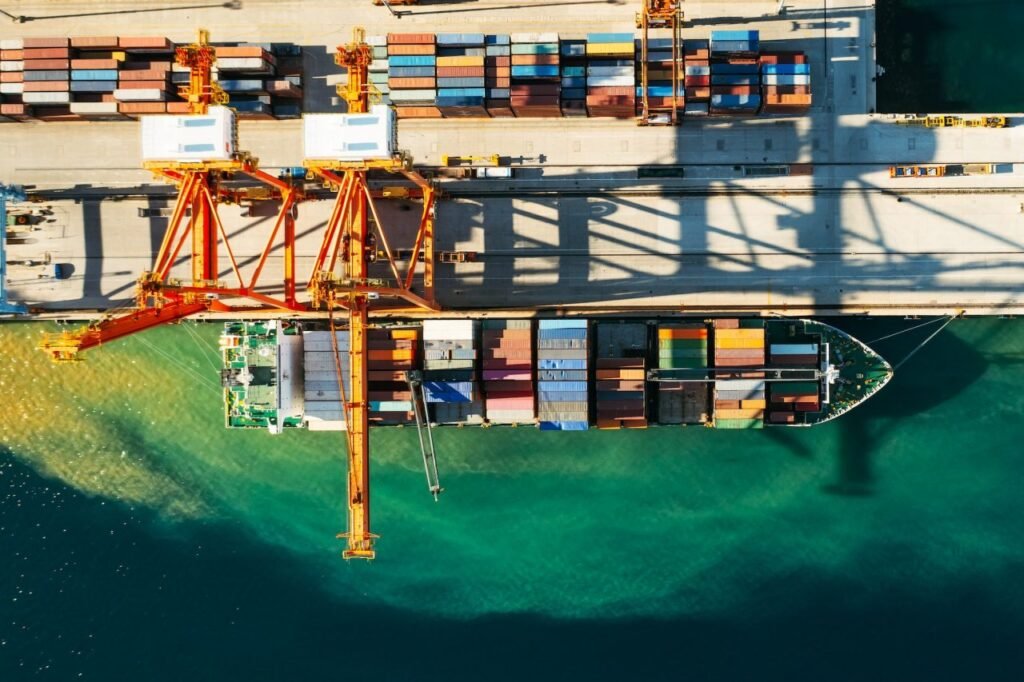
Sea Freight Shipping from China to Argentina
Enjoy cost savings with our high-capacity sea freight options, ideal for large shipments without the rush.
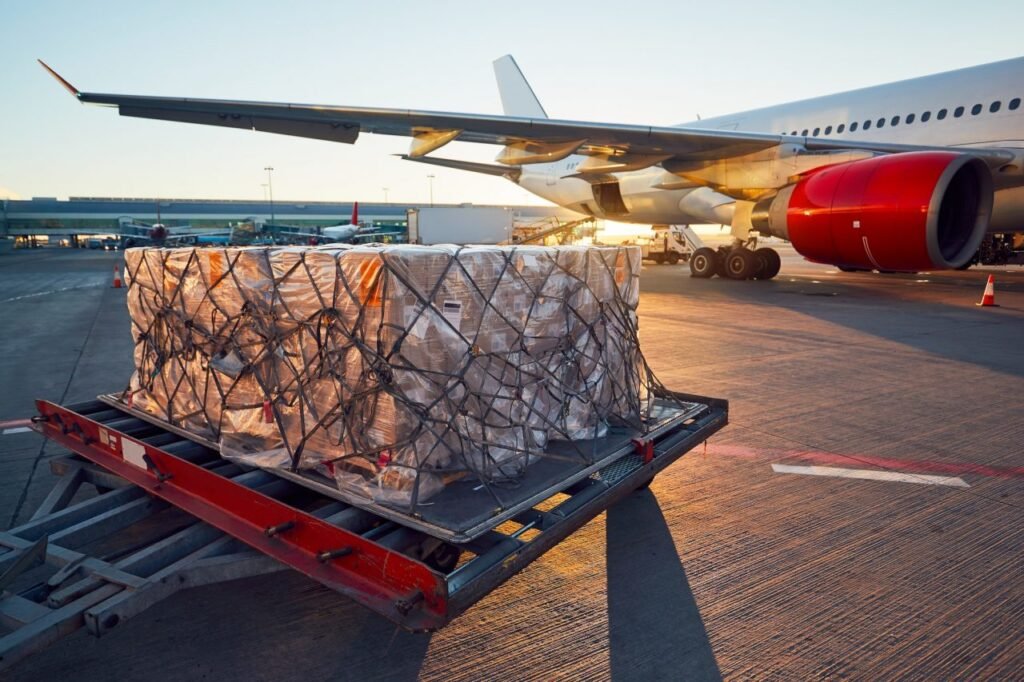
Air Freight Shipping from China to Argentina
Expedite your urgent shipments with our air freight services, ensuring your business stays on schedule.

Door to Door Shipping from China to Argentina
Experience hassle-free shipping with our door-to-door service, covering all logistics from pickup to delivery.
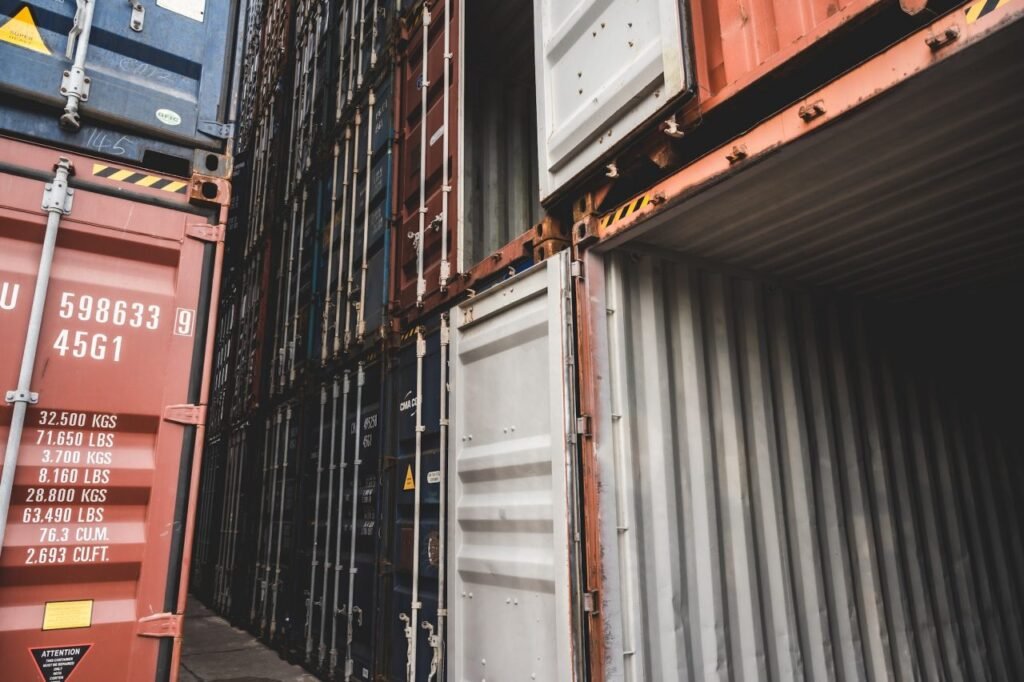
Cheapest Shipping From China to Argentina
Maximize your budget with our affordable shipping solutions, designed to deliver cost-effective and reliable transport.
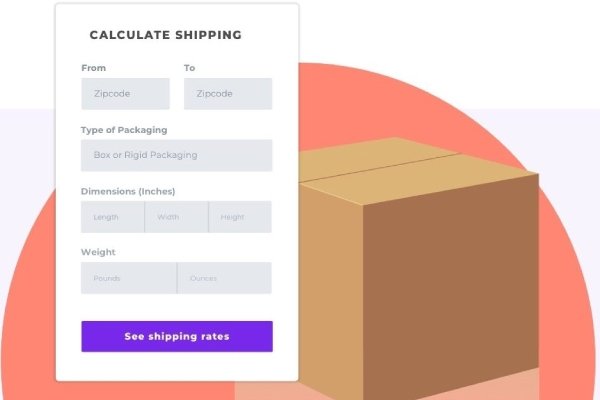
How long/much Shipping from China to Argentina
Plan effectively with our clear and upfront information on timelines and costs, empowering your business decision-making.
FCL Shipping From China to Argentina
Mbmlog’s FCL Shipping service can secure your large shipments with Full Container Load (FCL) shipping, ensuring your cargo travels together without disruptions, perfect for bulk goods needing robust protection.
LCL Shipping From China to Argentina
Benefit from the flexibility of Less than Container Load (LCL) shipping, which allows you to send smaller shipments more frequently, helping manage inventory effectively without the need to fill a full container.
Additional services for shipping from China to Argentina
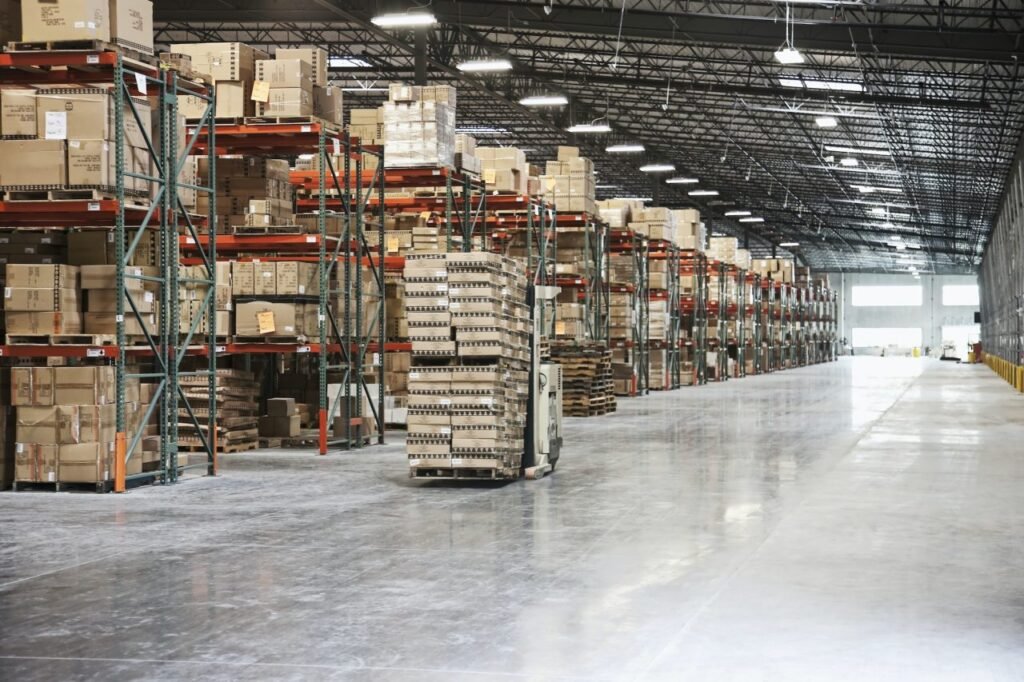
Pickup & Delivery
Streamline your logistics with our reliable pickup and delivery services, ensuring timely and efficient transportation from your doorstep directly to the destination, enhancing operational speed and reliability.

Warehouse
Utilize our secure and scalable warehousing solutions to safely store your goods, offering flexible storage options that adapt to your business needs, helping optimize inventory management and accessibility.
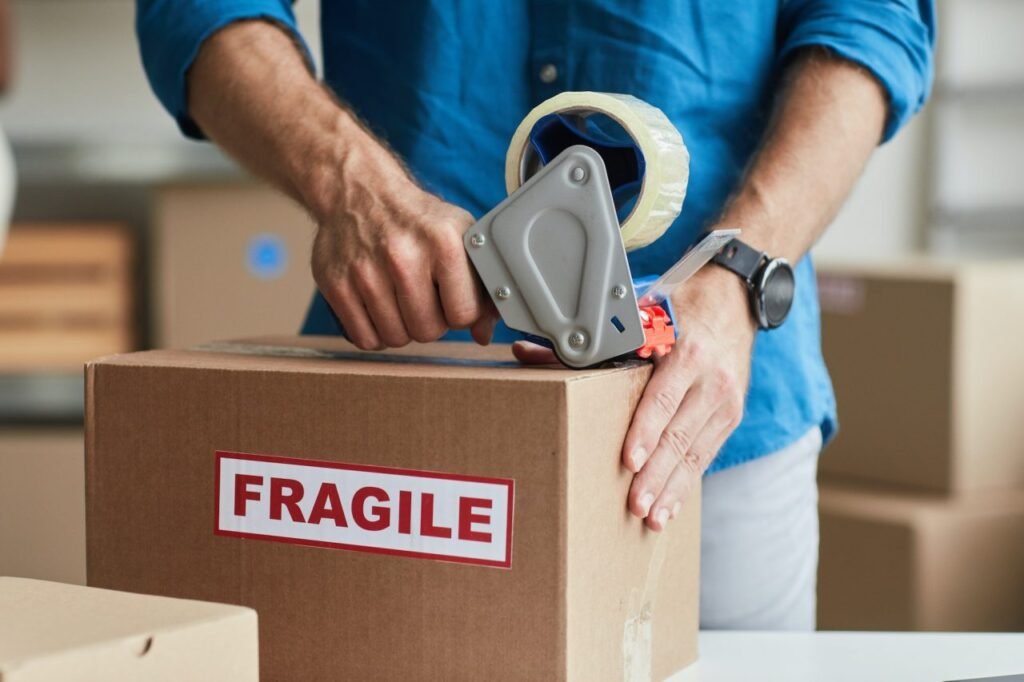
Cargo Insurance
Protect your investments with comprehensive cargo insurance, providing financial security and peace of mind against potential transit damages or losses, ensuring smooth and risk-free shipping operations.

Shipping to FBA Warehouse
Facilitate seamless integration with Amazon’s network through our specialized shipping services to FBA warehouses, optimizing your fulfillment strategy, reducing handling times, and boosting your sales potential.

Custom Clearance
Expedite your international shipments with our expert custom clearance services, minimizing delays and ensuring compliance with all global trade regulations, simplifying your import/export processes.

Loading Inspection
Ensure the quality and condition of your goods with our thorough loading inspections, securing shipment integrity and enhancing overall customer satisfaction by preventing potential issues during transit.

Express Shipping
Accelerate your delivery times with our express shipping options, ideal for urgent shipments that require fast and reliable service, helping you meet tight deadlines and exceed customer expectations.
Why Choose MBM ?
Experience the benefits of smooth moving
By choosing mbmlog, you gain competitive pricing, reliable and timely deliveries, and 24/7 expert support. Benefit from our 20 years of experience, seamless customs clearance, and free warehouse storage, ensuring your logistics are efficient, cost-effective, and worry-free.
20 Years Expertise
Mbmlog offers unparalleled logistics solutions. Our extensive experience ensures efficient, reliable services tailored to meet your diverse shipping needs.
Free Warehouse
Enjoy up to 30 days of free warehouse storage with mbmforwarding. Our secure, well-organized facilities ensure your goods are stored safely.
24hx7 English Speaking Expert Supports
We provides 24hx7 English-speaking expert support, ensuring seamless, efficient communication and immediate assistance for all your logistics requirements.
Cargo Insurance
Our company offers comprehensive cargo assurance services, protecting your shipments with tailored insurance options, ensuring safety and peace of mind during transit.
On Tracking Services
mbmforwarding's on tracking services provide real-time updates on your shipments, ensuring you always have accurate information about your cargo's status.
Professional Custom Clearance
Our professional custom clearance services guarantee smooth, efficient processing. Our expert team handles all documentation, ensuring compliance with regulations.
